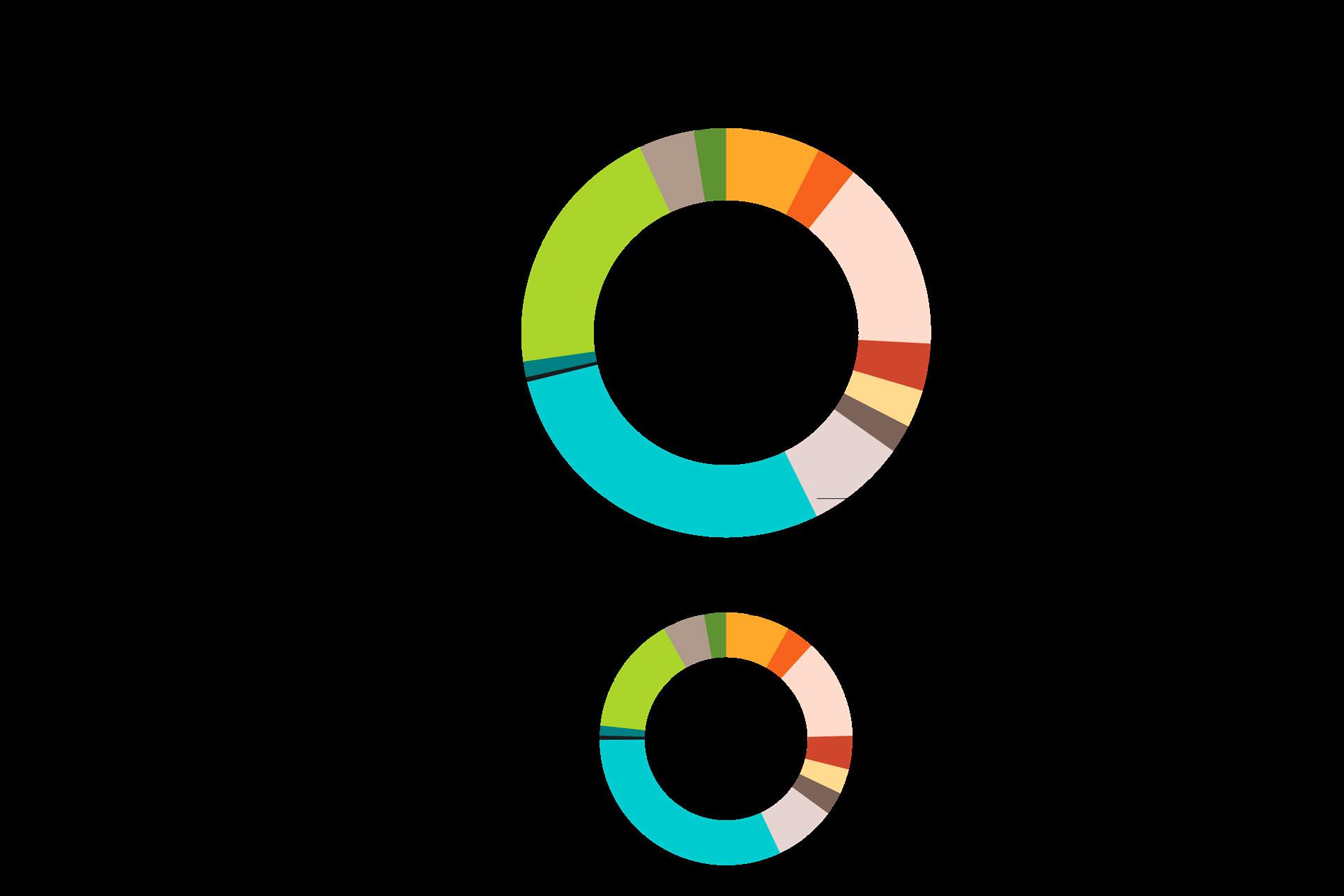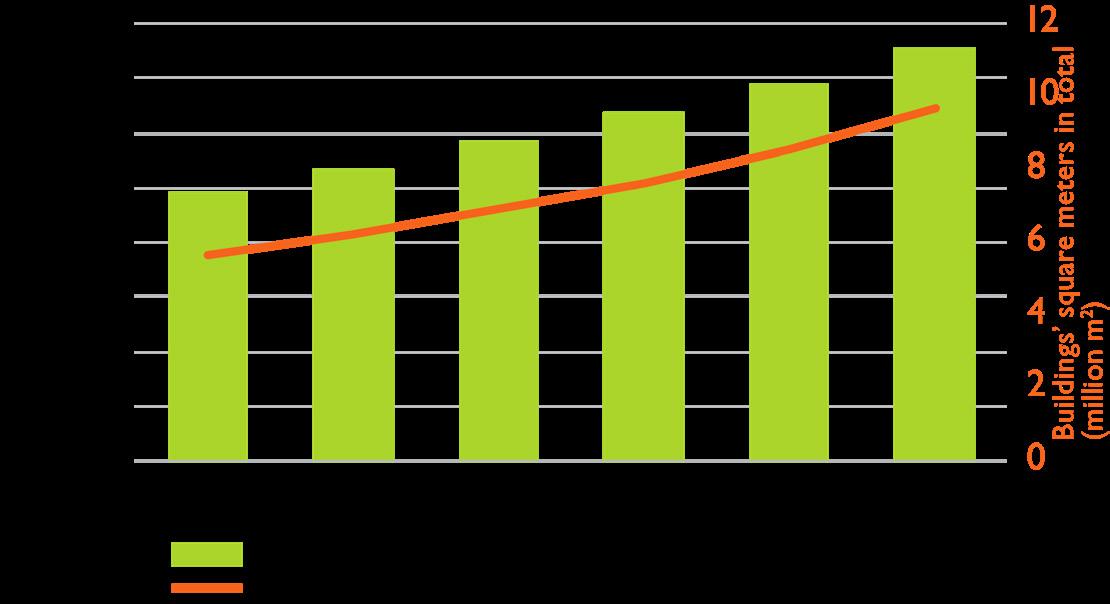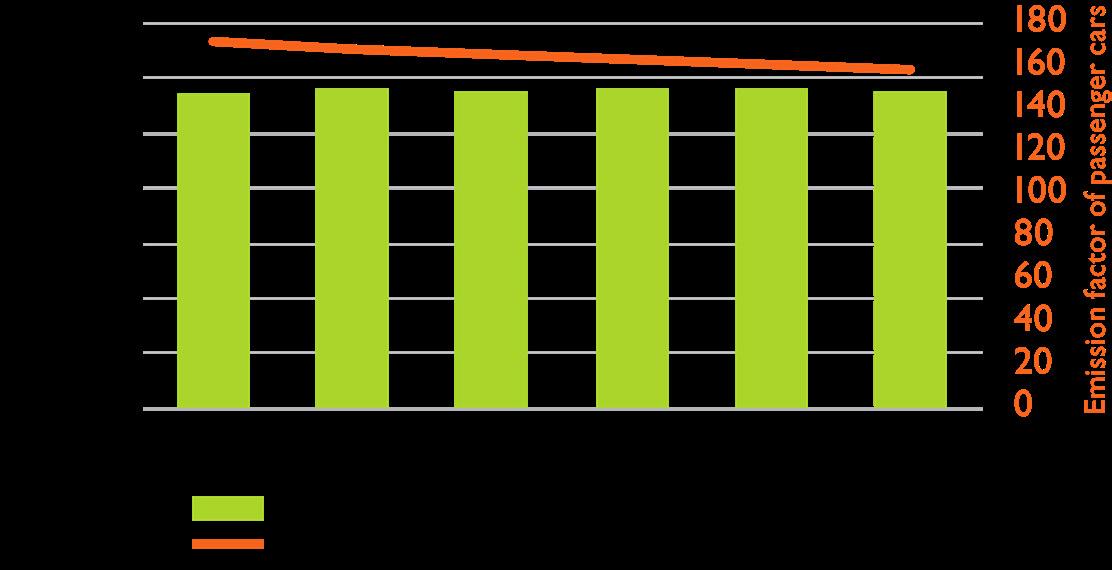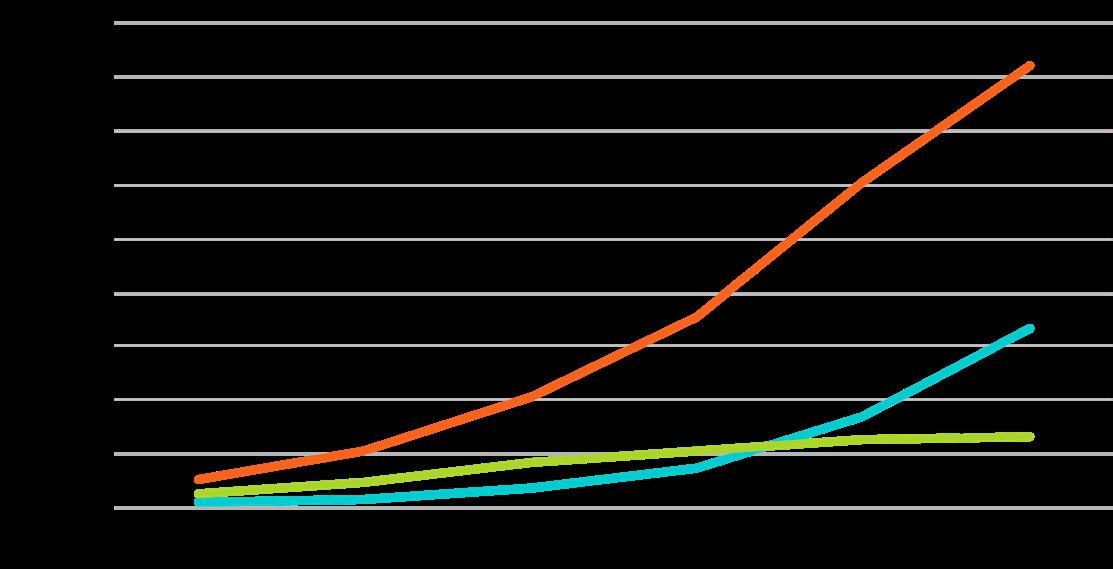Working towards carbon neutrality

HINKU NETWORK’S ANNUAL REPORT 2022
Established in 2008, Hinku is a network of pioneers working to reduce greenhouse gas emissions and curb climate change. It brings together municipalities and regions committed to ambitious emissions reductions, companies providing climate-friendly products and services as well as experts in the energy and climate sectors.
www.carbonneutralfinland.fi/en-US/Hinku

HINKU NETWORK’S ANNUAL REPORT | 2022 | WHAT IS HINKU?
Looking back
– and forwards
The Hinku network has been in operation for 15 years. We have come a long way from our start, pushing for climate change mitigation, to the current day Finland – well aware of the importance of climate work. And so the network has grown from five municipalities into a group of 96 municipalities, which are inhabited by 42% of Finland’s population.
Originally, the aim of Hinku was to make the impossible possible and create new and cost-effective emissions reduction measures for municipalities, residents and businesses. The pilot municipalities acted as Finland’s laboratories, whose examples and solutions inspired others to join in as well. Simultaneously, the domestic markets were activated and a regional-level showcase, displaying Finnish climate-friendly technology to the world, was born.
Nowadays, both large cities and small municipalities are part of the Hinku network. They have very different resources for carrying out climate work. Business structures differ from one another, and many municipalities have made large emissions reductions even before the start of monitoring. This is why municipalities should not be compared to each other based on emissions reductions. Everyone focuses on their own development and strives to do the best they can. Municipalities have methods for mitigating climate change at their disposal which the state does not have. They are in a special position for including residents and companies in the carbon-neutral transition. Both need the other in the climate-sustainable transition.
This annual report starts a new period in Hinku activities. It presents relevant information regarding the climate work of municipalities at the annual level. The annual report’s content develops over time, and as a result municipalities can better position their activities with respect to other municipalities and also find new ideas for the development of their own. The annual report compiles the information in such a way that the value of climate work of municipalities can be understood better than it is now in all of society.
The COVID-19 crisis has reminded us that the world can change in ways other than what we would like to believe. On the other hand, we must take control of problems in order to work together toward a shared goal. These experiences need to be redirected to fighting climate change. Post-pandemic recovery should help get the climate actions of municipalities up and running and bring in the municipalities that have not yet joined, in such a way that Finland’s 2035 carbon neutrality objective becomes a possibility for us. After all, we will need success factors going forward in order to pay back the debt we took on to manage the COVID-19 crisis.
Pioneer municipalities around Europe are progressing the carbon-neutral transition at a faster pace than states have committed to. Even compared to the Nordic countries, Finland is at the frontline in this matter. It is essential to prove that investing in public climate work will have a large leverage effect on the entire country’s climate work. Each Hinku municipality plays an important role in this transition. Hinku’s original purpose is more important today than ever before.
Professor Jyri Seppälä National Director of the Hinku network Finnish Environment Institute
PHOTO: KAI WIDELL HINKU NETWORK’S ANNUAL REPORT | 2022 | EDITORIAL
Hinku municipalities and regions have committed to aiming for 80% emissions reductions* from the level of 2007 by the year 2030.
* Emissions reductions are calculated based on usage-based emissions in accordance with Hinku’s calculations without carbon offsets.

HINKU NETWORK’S ANNUAL REPORT | 2022 | OUR GOAL
Finland’s Hinku municipalities and regions
96 Hinku municipalities are already included in the Hinku network.
The Hinku network also includes five regions: South Karelia, Kymenlaakso, Pirkanmaa, North Karelia and Päijät-Häme.
The total population of the Hinku municipalities and regions is over 2.4 million!*
Municipalities in the Hinku network:
Akaa
Asikkala
Enontekiö
Eurajoki
Haapajärvi
Hamina
Hanko
Harjavalta
Hartola
Heinola
Hollola
Hyvinkää
Hämeenkyrö
Ii
Ilomantsi
Imatra
Inkoo
Joensuu
Jokioinen
Juuka
Kangasala
Kemi
Kemijärvi
Kirkkonummi
Kitee
Kokkola
Kontiolahti
Kotka
Kouvola
Kuhmoinen
Kärkölä
Lahti
Laitila
Lappeenranta
Lempäälä
Lieksa
Liperi
Lohja
Loimaa
Loviisa
Lumijoki
Maalahti
Masku
Muhos
Mynämäki
Mäntsälä
Naantali
Nokia
Nurmes
Orimattila
Orivesi
Oulainen
Outokumpu
Padasjoki
Paimio
Paltamo
Parikkala
Pelkosenniemi
Pieksämäki
Pirkkala
Pori
Porvoo
Posio
Punkalaidun
Puolanka
Pyhäjärvi
Pälkäne
Raahe
Raasepori
Rauma
Rautjärvi
Ristijärvi
Ruokolahti
Ruovesi
Rääkkylä
Sastamala
Seinäjoki
Simo
Siuntio
Sodankylä
Sulkava
Tampere
Tohmajärvi
Turku
Tyrnävä
Urjala
Utajärvi
Uusikaupunki
Vaala
Valkeakoski
Vantaa
Vesilahti
Viitasaari
Ylivieska
Ylöjärvi
Äänekoski
Hinku municipalities H inku regions
* Population in 2022.
Hinku municipalities 11/2023. Basemap: National land survey of Finland, Statistics Finland.
PHOTO STOCK.ADOBE.COM HINKU NETWORK’S ANNUAL REPORT | 2022 | HINKU INFO
Preliminary estimates: Hinku
municipalities’ climate emissions decreased by 3,5 per cent in 2022
The Finnish Environment Institute (Syke) calculates the usage-based emissions of each Finnish municipality. The emissions are calculated for each municipality with a uniform calculation method which follows international guidelines.
According to Syke’s preliminary estimates, the total greenhouse gas emissions of Hinku municipalities in 2022 fell by 3.5 per cent from the previous year. The emissions were calculated in accordance with the Hinku calculation rules, with carbon offsets. Compared to 2007, emissions have decreased by 39.8 per cent. As in previous years, the largest sources of greenhouse gas emissions in 2022 were road transport (31.9% of total emissions), agriculture (15.1%) and the production of district heating (12.8%).
Reviewed 21 November 2023. 96 Hinku municipalities participating.
Check your municipality’s emissions on the paastot.hiilineutraalisuomi.fi website
Hinku calculation
The default calculation model intended for monitoring the emission goals of municipalities is called the Hinku calculation. According to the Hinku calculation rules, municipal emissions do not include industrial fuel use, which is included in emissions trading, industrial electricity consumption, the emissions from industrial waste treatment, nor the emissions caused by the pass-through traffic of trucks, vans and buses. In monitoring the emissions target of Hinku municipalities, emissions from the Hinku calculation are examined with carbon offsets.
When a new municipality joins the Hinku network, the emissions for the municipality in question are included in the calculations of the total emissions of Hinku municipalities starting from 2007.
www.carbonneutralfinland.fi
► Emissions and indicators ► Municipalities’ and regions’ usage-based greenhouse gas emissions
► Usage-based calculating the greenhouse gas emissions of Finnish municipalities
Hinku municipalities -37% All of Finland
2007–2022 -42% Hinku municipalities -40% All of Finland
Change in total emissions 2007–2022 -40%
Change in emissions per person
HINKU NETWORK’S ANNUAL REPORT | 2022 | EMISSIONS DEVELOPMENT

Hinku municipalities’ greenhouse gas emissions during 2007–2022. The emissions have been calculated in November 2023 by using the Finnish Environment Institute’s Alas 1.5 model in accordance with the Hinku calculation rules, with carbon offsets. In 2022, Hinku municipalities’ emissions constituted 39 per cent of Finland’s emissions.

Distribution of total greenhouse gas emissions of all of Finland and Hinku municipalities in 2022. The emissions have been calculated by using the Finnish Environment Institute’s Alas 1.5 model in accordance with the Hinku calculation rules, without carbon offsets.
HINKU NETWORK’S ANNUAL REPORT | 2022 | EMISSIONS DEVELOPMENT
Monitoring climate work with indicators
The Finnish Environment Institute collects information about indicators relating to energy and transport for Finnish municipalities and regions. Alongside greenhouse gas emissions, the indicators support and complement the monitoring of the progress of climate work by municipalities and regions.
Climate work indicators help municipalities and regions in monitoring the impacts of climate work and selecting new solutions to support climate work. Indicators have been calculated for all Finnish municipalities and regions.
The indicators include key figures related to energy use, production and traffic. In our indicator service, you can select to view any municipality, region, the whole of Finland or, for example, all Hinku municipalities. The service is also published in English and Swedish. Indicator information has been collected from various statistical sources. Information on the capacity and production amounts of solar electricity connected to the grid was determined by collecting the information directly from the electricity grid companies.
Energy indicators
Final energy consumption
Oil consumption for energy production
Consumer electricity
Transport indicators
Passenger cars and their average emissions
Charging stations and gas filling stations
Numbers and shares of electric, hybrid and gas cars
Residential buildings’ heating energy consumption
Production of solar power
Production of wind power
Buildings using geothermal heating
Here are some examples of the energy and transport indicators. Learn more about all of the indicators at the www.carbonneutralfinland.fi website ► Emissions and indicators ► Climate indicators of municipalities and regions ►
HINKU NETWORK’S ANNUAL REPORT | 2022 | CLIMATE WORK INDICATORS
Buildings using geothermal heating in Hinku municipalities 2017–2022

Since 2017, the number of buildings has increased by 53.8 per cent and floor areas have increased by 70.6 per cent. The geothermal heating renovations of older buildings are updated to the register with a delay, which is why there may be more buildings utilising geothermal heating than are shown. The indicator figures were last reviewed 11/2023.
Passenger cars and their emissions in Hinku municipalities 2017–2022

In 2022, there were a total of 1,157,001 passenger cars in Hinku municipalities. The average emissions were 158.4 gCO2 /km. Since 2017, the total number of passenger cars in the Hinku municipalities has increased by 1.07 per cent, but the average emissions have decreased by 7.5 per cent. The indicator figures were last reviewed 11/2023.

In 2022, there were a total of 41,115 rechargeable hybrids, 16,819 electric cars and 6,619 gas-operated cars in use in Hinku municipalities. Relatively, the number of rechargeable hybrids has increased the most since 2017. The indicator figures were last reviewed 11/2023.
Number of buildings (thousand pcs) Buildings’ square meters in area (million m2) 2017 24,560 5 667,537 2018 26,819 6 247,625 2019 29,393 6 923,453 2020 31,818 7 648,932 2021 34,410 8 539,650 2022 37,784 9 654,440 Source: Digital and Population Data Services Agency – Building and Dwelling Register (BDR). © Finnish Environment Institute. 2023.
Number of passenger cars (pcs) Emission factor of passenger cars (gCO2 /km) 2017 1,144,803 171,289 2018 1,159,296 168,606 2019 1,150,286 165,104 2020 1,162,178 162,766 2021 1,164,573 160,253 2022 1,157,001 158,371 Source: Traficom and Ålands Fordonsmyndighet. © Finnish Environment Institute. 2023
of electric, hybrid and gas-operated
in Hinku municipalities in 2017–2022
Number
cars
Rechargeable hybrids (pcs) Electric cars (pcs) Gasoperated cars (pcs) 2017 2,741 466 1,322 2018 5,435 795 2,367 2019 10,237 1,864 4,266 2020 17,885 3,633 5,411 2021 30,302 8,496 6,288 2022 41,115 16,819 6,619 Source: Traficom and Ålands Fordonsmyndighet. © Finnish Environment Institute.
HINKU NETWORK’S ANNUAL REPORT | 2022 | CLIMATE WORK INDICATORS
2023.
Visibility and demand for solutions supporting climate work
In addition to municipalities and regions, the Hinku network includes 30 companies and expert associations in the energy and climate sector. Currently, there are almost one hundred municipalities and five regions in the Hinku network. The total population is over 2.4 million. This means that there is significant demand potential for climate-friendly products and services. The Hinku network, which encourages extensive climate cooperation, has also received international attention.
Learn more about the Hinku companies
online! www.carbonneutralfinland.fi ► Hinku ► Hinku companies
AFRY Management Consulting Oy
–AF RY X Smart Forestry
► afry.com
Lassila & Tikanoja Oyj
►lt.fi/en
Calefa Oy
► calefa.fi/en/
Mobinet Oy
► mobinet.fi
Devoi Oy
Nanopar Oy
► nanopar.fi
Forus Oy
► forus.fi/en
O wnwell
► ownwell.fi/en
Green Carbon Finland Oy
► greencarbon.fi/en
Positive Impact Finland Oy
► positiveimpact.fi/en
Hiilinieluntuottajat HNT Oy
► hiilinieluntuottajat.fi
Ra aseporin Energia Oy
► re.fi
Hukka AI Oy
► hukka.ai/en
R apal Oy
► rapal.com
Ilmastoapu Oy
► ilmastoapu.fi
Reforest Oy
► reforest.fi
IM L-Aeroseal –
Ilmastointimittaus Lind Oy
► iml.fi/en
S itowise Oy
► sitowise.com
Innotek Oy
► innotek.fi
Sk arta Energy Oy
► skartagroup.fi
► nyabgroup.com/en/
Inrego Oy
► inrego.com
Tehomet Oy
► tehomet.com /en
JAMIX Oy
► jamix.com
Vat tenfall Oy
► vattenfall.se /en
Joulupukin Pajakylän osuuskunta
► santaclausvillage.info
Kiteen Mato ja Multa Oy
► matojamulta.com
Wassis vedensäästö Oy
► vedensäästö.fi
Knowit Insight Oy
► knowit.fi
Yar a
► yara.fi
Kuntarahoitus Oyj
► kuntarahoitus.fi
► munifin.fi
HINKU NETWORK’S ANNUAL REPORT | 2022 | HINKU COMPANIES
Climate actions in Hinku municipalities in 2022
We collected the best climate actions of 2022 from Hinku municipalities –a total of 270!
Examples of the climate actions of Hinku municipalities
Approx. 50 energy actions
Incl. greener district heating, solar power, biogas from wastewater, wind power, adjustment of street and outdoor lighting, smart lighting, Down a Degree energy savings, procurement of renewable electricity
48 building and property actions
Energy renovations, waste heat recovery, moving away from oil heating, water-air heat pumps, geothermal heating, improving ventilation, energy efficiency of exercise facilities, libraries and educational facilities
Approx. 20 transport actions
Promoting cycling and walking, remote work, development of public transport, electric and biogas car use
And much more!
Sustainable zoning, climate impact assessments, better food services and reducing waste
Read more about our climate action: www.carbonneutralfinland.fi ► Climate action
Read about the Hinku network’s climate action!
In the Sustainability Leap database, members of the Hinku network can share stories about their climate action.

Check out the Sustainability Leap database! kestavyysloikka.ymparisto.fi/en/
HINKU NETWORK’S ANNUAL REPORT | 2022 | CLIMATE ACTIONS

Would you like to hear more about what the Hinku network does? Contact us!
www.carbonneutralfinland.fi/en-US/Hinku
This publication has been carried out with the financial contribution of the LIFE Programme of the European Union. The publication reflects only the CANEMURE project’s view, and the CINEA/European Commission is not responsible for any use that may be made of the information it contains.
Hinku network’s annual report 2022
Working towards carbon neutrality
Emissions data: Finnish Environment Institute (Syke)
Editors: Saara Sivonen and Hanna Talikka, Syke
Layout & graphics: Satu Turtiainen, Syke
Cover and back cover photos: stock.adobe.com
ISBN 978-952-11-5669-4 (PDF)
Finnish Environment Institute (Syke)
Helsinki, Finland. 4/2024.
www.carbonneutralfinland.fi @Canemure #CarbonNeutralFinland LIFE17 IPC/FI/000002 LIFE-IP CANEMURE-FINLAND
HINKU NETWORK’S ANNUAL REPORT | 2022 | HINKU NETWORK










